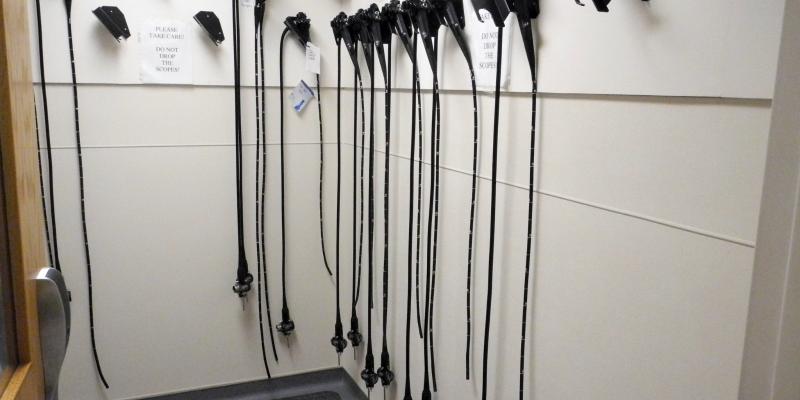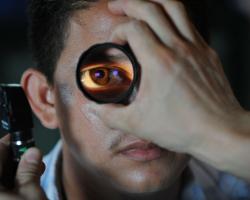Having undergone colonoscopy, Ozzy Osbourne, the famous singer of the band called Black Sabbath, tried to encourage his wife to do the same. She felt it was too embarrassing and refused. In 2002, she was diagnosed with colorectal cancer.
She had to undergo a surgery in which a tumour was removed along with a several-inch-long portion of her intestine and a colostomy was performed. Then, for three months, she was treated with chemotherapy, uncertain of whether she would make it through. Initially, doctors gave her only a 33-percent chance of recovery.
Mild precancerous changes
Sharon Osbourne managed to get through cancer. She now regrets her decision not to undergo colonoscopy, as it would certainly save her a lot of suffering.
In 2004, she established the Sharon Osbourne Colon Cancer Programme to tell others about her mistake and to encourage people to undergo colonoscopy, although this is the least popular examination recommended in cancer treatment. As unpleasant and uncomfortable as it is, it saves many lives and helps avoid invasive and burdensome treatment.
Colonoscopy is an examination using long, flexible tube, which is passed through the anus and further into the large intestine to enable a thorough inspection of its inside. The examination can detect polyps, which are adenomatous growths on the surface of the colon (protruding above the surface of its mucous membrane).
These are mild precursor lessions (usually pedunculated and sessile) from which colon cancer usually develops (the risk being from three to six times higher when the polyps are larger than 1 cm). They are asymptomatic until a malignant tumour develops, and even then the cancer might remain latent for a long time. It is important, therefore, to detect the preceding changes as early as possible.
Men more at risk
Such mild polyps are found in 30-40 percent of people over 50 years of age. Men are affected twice as often as women. Not all polyps transform into malignant tumours, but they are the underlying cause of almost all colon malignancies.
It takes at least 10 years for the tumour to develop. Hence the belief that it is enough to undergo examination every ten years to detect cancer on time.
Professor Jarosław Reguła, Head of the Oncological Gastroenterology of the Oncology Centre in Warsaw, assures that colonoscopy helps cut the risk of colon cancer by 60 percent.
Who can undergo the examination and where?
In Poland, preventive colonoscopy has been performed free of charge since 2000. Since 2012, this examination has been also provided to those who have received special invitations (stating the address of the medical facility providing the examination). The procedure is similar to that applied for screening tests in early breast (mammography) and cervical (cytology) cancer detection.
Such invitations are sent to individuals aged 50 to 65 regardless of whether their families have a history of colon cancer. Those who have a first-degree next of kin with a diagnosed colon cancer are recommended to use colonoscopy as early as at the age of 40 years.
The most at risk are individuals with familial adenomatous polyposis (FAP) and those who have a family history of hereditary non-polyposis colorectal cancer (HNPCC). Such persons are advised to undergo colonoscopy as early as from the age of 25 and as frequently as every two or three years.









Comments (0)